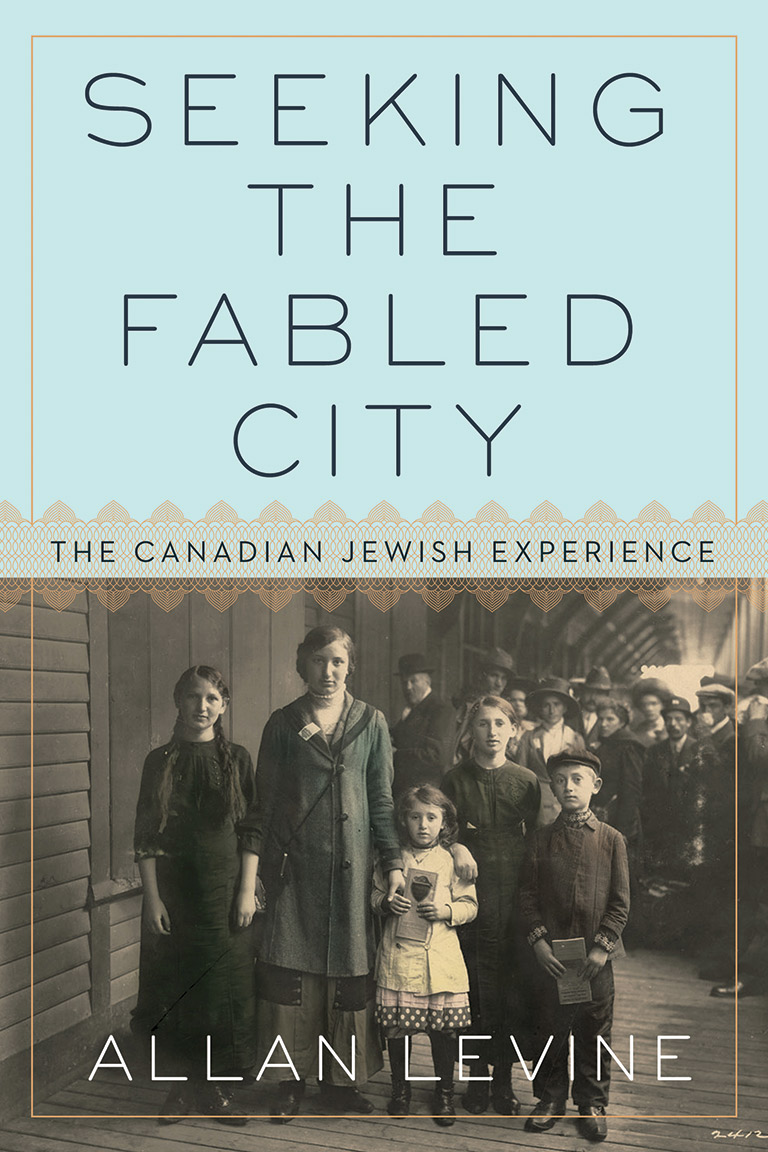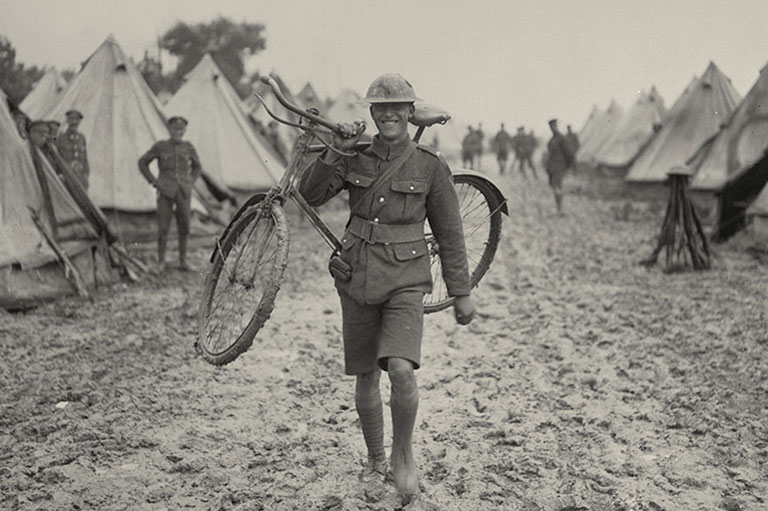Seeking the Fabled City

Seeking the Fabled City: The Canadian Jewish Experience
by Allan Levine
McClelland & Stewart, 512 pages, $45
“It is a fabled city that I seek,” said the famed Jewish poet A.M. Klein as he reminisced about his life in Montreal’s tight immigrant circle. In his latest book, Allan Levine adopts this phrase, connoting both nostalgia and aspiration, to define the Canadian Jewish experience.
Based in Winnipeg, Levine is one of Canada’s fine non-academic historians. An author of fifteen published works, he has a consistently readable style, weaving narratives around wellresearched information while interspersing many vignettes.
The story of Jews in Canada can be told as a metaphor for other immigrant groups who have settled here, often facing harsh social and financial conditions but then progressing to better status and stability. The Jewish story (together with the Ukrainian story) can also be read as the rise of multiculturalism and the victory of legally recognized human rights.
Levine’s book reflects these themes as he combines historical narrative with more recent observations. In the first half of the book, his arc echoes those of previous writers, notably Gerald Tulchinsky, Irving Abella, and Harold Troper, describing the chronology of early arrivals, subsequent immigrant waves, and the challenge of creating the educational, cultural, and religious institutions that are essential to Jewish identity.
Wider social, political, and economic themes also stand out. Levine writes about Jews in the military in both world wars (they enlisted in high numbers), in businesses, in the professions, and in public welfare bodies. They often faced the malignant force of anti-Semitism, but in Canada they did not encounter the mobs and murders of the countries they had left behind. Canadian policies, which had begun in the French colonial regime (no Jews or Protestants were permitted), continued in a low-key English manner until recent times: “Antisemitism remained acceptable as long as it was done with discretion,” Levine observes.
The struggle for the fair treatment of Jews, and for more openness to potential immigrants, also benefitted other minorities. Yet this battle was not won easily. Levine describes the virulent French-Canadian anti-Semitism voiced by Ernest Lapointe, a prominent federal politician, and the stubborn opposition of key public servants to explain Canada’s miserable record toward refugees from fascism and the Nazis. This was “one of the worst and weakest moments” of Prime Minister William Lyon Mackenzie King’s career, says Levine (who is also a biographer of King).
But lessons were learned. The next generation of federal political leaders proved more understanding, starting a tradition of accepting large numbers of postwar displaced persons and then refugees from Hungary, Vietnam, and Soviet Russia, among other places.
In job markets, housing, and social practices, restrictions against Jews were linked to the exclusion of other minorities, notably African- Canadians and immigrants from southern Europe; Levine shows that decisions to lift restrictions on Jews were applied to those people as well. The “multiculturalism” policy announced in 1970 by Prime Minister Pierre Trudeau (whose federal riding of Mount Royal was home to many Jews) expressed a goal of embracing diversity within a united country. In Levine’s words, this was for Jews “as good an excuse as any to come out of the closet.”
Biographical details are essential to Levine’s approach. He introduces many characters with brief stories about their lives, relationships, and contributions. In this book, he goes into detail about Samuel Bronfman, Bora Laskin, David Lewis, Lillian Freiman, and a host of others.
Levine loses some focus when dealing with contemporary issues. Some examples will suffice: He falls into the trap of assuming that Jews are uncomfortable with Quebec culture and nationalism (yes, some are, but many thousands are not). He states that most Jews supported former Prime Minister Stephen Harper politically (yes, some did, but most did not). He gives examples of women succeeding in the top positions of Jewish secular organizations (but divisions over women’s roles remain deep in some religious settings).
On these issues, the verdict of history is not yet evident. But Levine’s book stands as a fresh, easily accessible description of how Canada has been a fabled land for Jews and how Jews have added to this country’s attractiveness to others.
We hope you’ll help us continue to share fascinating stories about Canada’s past by making a donation to Canada’s History Society today.
We highlight our nation’s diverse past by telling stories that illuminate the people, places, and events that unite us as Canadians, and by making those stories accessible to everyone through our free online content.
We are a registered charity that depends on contributions from readers like you to share inspiring and informative stories with students and citizens of all ages — award-winning stories written by Canada’s top historians, authors, journalists, and history enthusiasts.
Any amount helps, or better yet, start a monthly donation today. Your support makes all the difference. Thank you!
Themes associated with this article
Advertisement
You might also like...

Our online store carries a variety of popular gifts for the history lover or Canadiana enthusiast in your life, including silk ties, dress socks, warm mitts and more!








